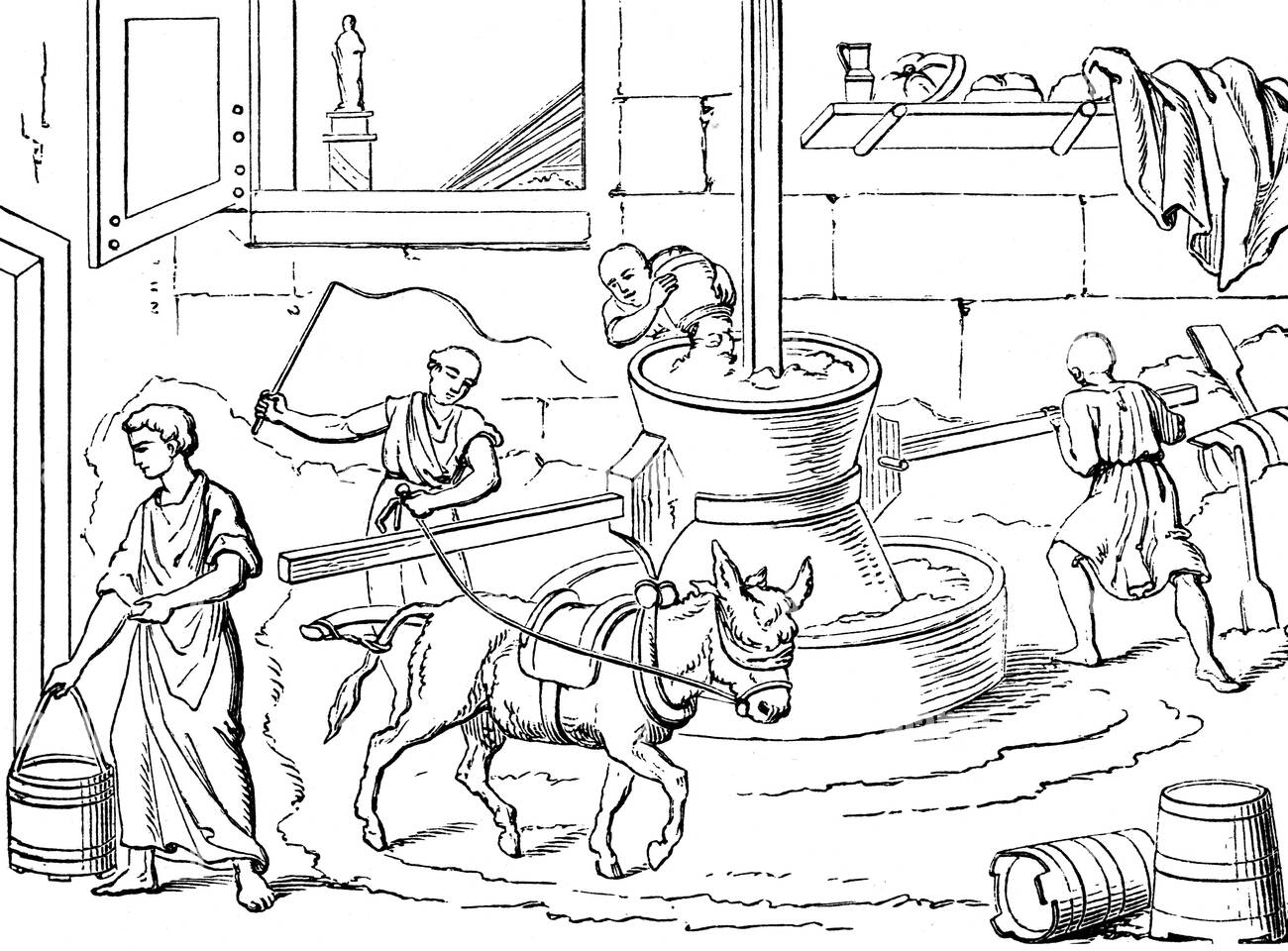Ongoing excavations at the ancient Roman city of Pompeii, Italy, has recently unearthed a darker feature of the city’s past. Archaeologists have found a structure where enslaved people and donkeys were confined and forced to grind grain to make bread, a painstaking process that could take hours.
The bakery-prison, as it is being referred to by the Archaeological Park of Pompeii, was a cramped room with no view of the outside world. Those forced into this space would have had to rely on a few small, barred windows built high into the walls for light.
The room forms part of a house that was recently discovered at the site Regio IX, Insula 10, where work is currently being conducted to secure and consolidate the slopes that form the edges of unexcavated areas of the city of Pompeii.
As is typical in this ancient place, the house was divided into a residential area, which is lavishly decorated with Fourth Style frescoes, a style of art that appeared in the city between 62 BCE and its destruction in 79 BCE, and a “productive quarter”, where domestic work – in this case, the bakery – was carried out.
“[It is] a space in which we have to imagine the presence of people of servile status whose freedom of movement the owner felt the need to restrict,” Gabriel Zuchtriegel, the Archaeological Park of Pompeii’s Director, said in a co-authored article.
“It is the most shocking side of ancient slavery, the one devoid of both trusting relationships and promises of manumission, where we were reduced to brute violence, an impression that is entirely confirmed by the securing of the few windows with iron bars.”
The bakery’s millstone is located in the southern part of the central room, and is adjacent to the stable, which is identifiable by the presence of a feeding trough.
Surrounding the millstone are a series of semicircular indentations in the volcanic basalt paving slabs. It was initially thought that these could have been worn into the surface over a long period of time, but it is more likely they were deliberately carved into the floor to guide animals on their repetitive movements.

The donkeys were often blindfolded during their work to stop them from getting spooked.
Image courtesy of the Archaeological Park of Pompeii
“Iconographic and literary sources [such as Apuleius’ Golden Ass], particularly the reliefs from the tomb of Eurysaces in Rome, suggest that a millstone was usually moved by a couple consisting of a donkey and a slave. The latter, in addition to pushing the grindstone, had the task of inciting the animal and monitoring the grinding process, adding grain, and collecting the flour.”
The grooves show signs of wear that would have occurred due to the sheer number of hours of endless movement carving into them over the years.
“More than just a groove it reminds us of the gears of a clockwork mechanism, designed to synchronize the movement around the four tightly packed millstones found in this area,” the Archaeological Park of Pompeii said in a statement.
“In the final analysis,” the director adds, “it is spaces like this that also help us understand why there were those who thought it necessary to change that world and why in the same years Paul, a member of a small religious group, who was later canonised, wrote that it is better to be all servants, ‘douloi’, meaning slaves, not of an earthly master, but rather of a heavenly one.”
Source Link: “Prison Bakery” Discovered In Pompeii Is A Grisly Reminder Of A Darker Aspect Of Ancient History